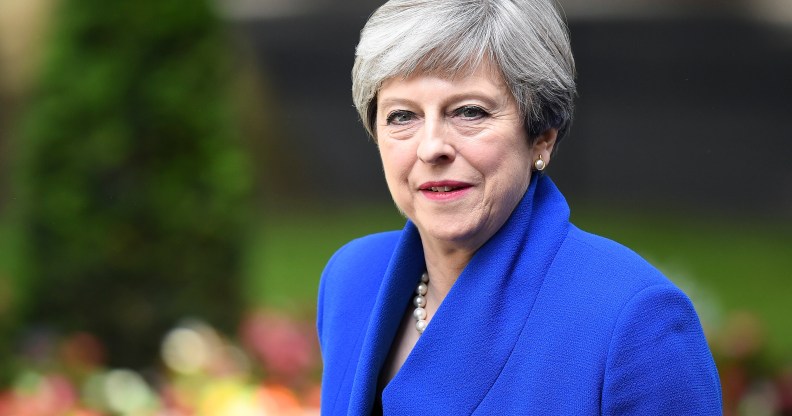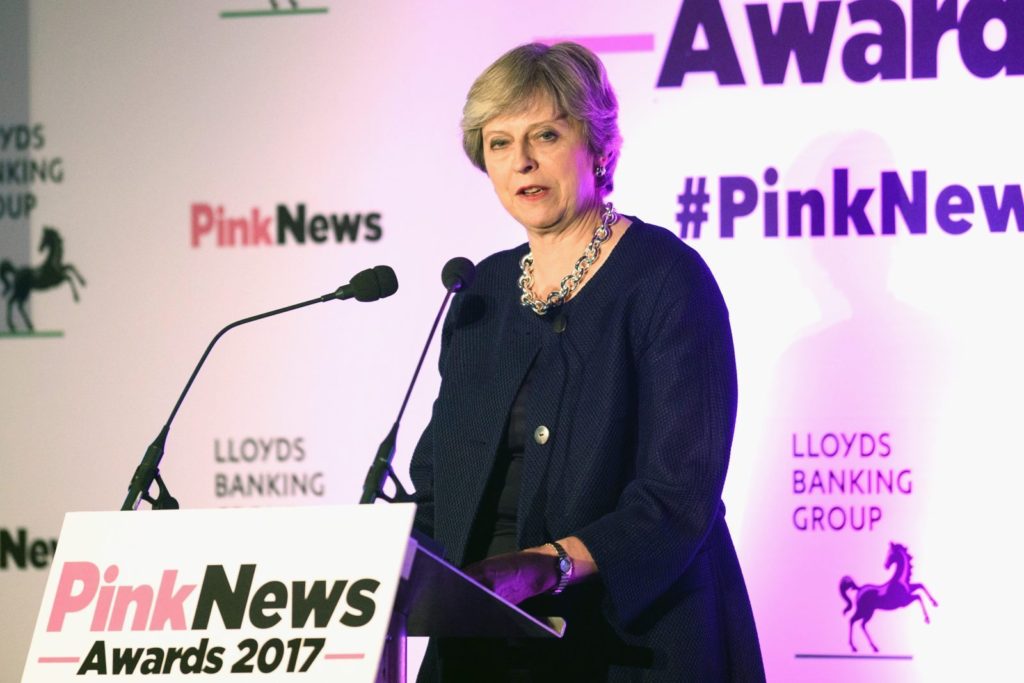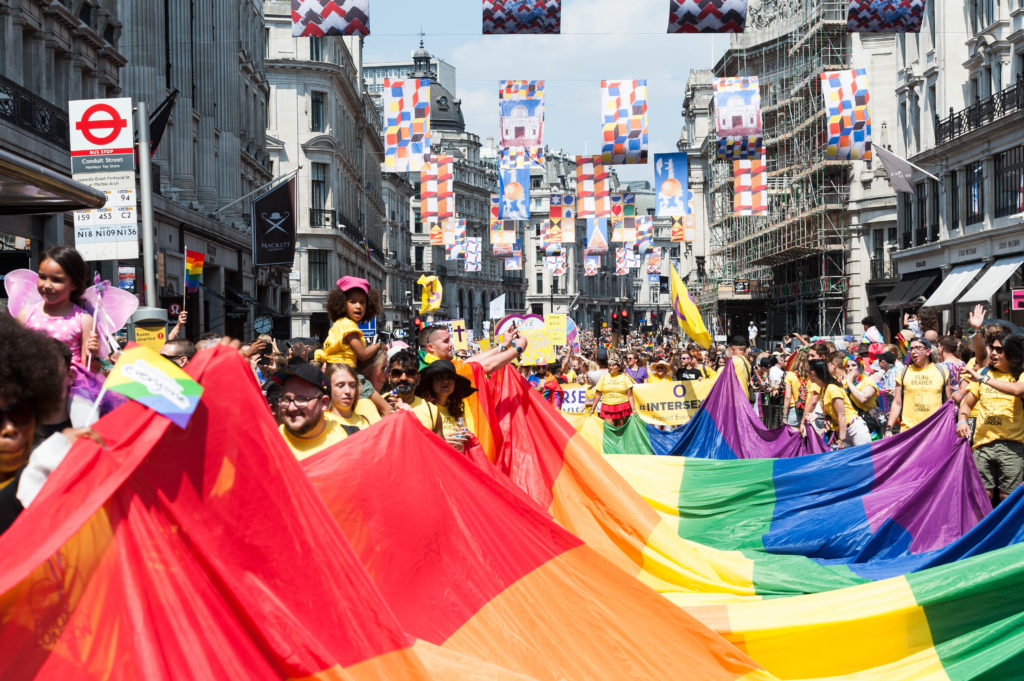Theresa May: I am concerned about transphobic aggression and misrepresentation of trans people in media

Theresa May will officially resign as the UK’s prime minister at Buckingham Palace on July 24. (Leon Neal/Getty Images)
Last week marked the 50th anniversary of the Stonewall riots, a rebellion that changed the LGBT+ rights movement forever and acted as a catalyst for much of the progress that we have seen across the world since.
This year in the UK we are also celebrating the 30th anniversary of the charity Stonewall, who have achieved so much through their persistent and dignified campaigning.
So it is timely to reflect on how far the fight for LGBT+ rights has come.
First, attitudes have changed profoundly – I am proud to be the Prime Minister of a country consistently ranked among the most LGBT-friendly places in the world.
Hard won rights and progress cannot be taken for granted
And as I said when I hosted last year’s Pride reception at No 10, attitudes within politics have been transformed too.
Nothing better epitomises that than the journey in 30 years from the government introducing Section 28 to the government introducing equal marriage in 2014.
And we have not stood still.
A year ago we published our four-year ‘LGBT Action Plan’ in response to the largest ever survey of its kind in the world.
Some of the results of this survey were shocking and as a result, our plan was wide-ranging and ambitious, and contained more than 75 commitments spanning the whole of government and the entirety of an LGBT+ person’s life.

Theresa May speaks at the PinkNews Awards in 2017. (PinkNews)
We’ve made good progress, with more than one third of the commitments made having been delivered, including the extension of our anti-bullying programme in schools, a new LGBT+ healthcare fund and an ‘LGBT Advisory Panel’ of experts to support us on some of the most challenging issues.
But in this year worthy of celebration, recent events have also reminded us that hard won rights and progress cannot be taken for granted.
The Stonewall riots were a push for equality from people who for too long lived in secrecy and fear, afraid to be themselves.
The threat of bigotry is still a daily reality
Fifty years on, it deeply concerns me that in the UK there are many who feel they still cannot live their lives openly because of their sexuality or because they are transgender.
Like many others, I was shocked when I heard of the two young women who were subject to an appalling homophobic attack on a London bus a few weeks ago.
People say they cannot believe that this sort of thing still happens in the UK in 2019, not least in our capital city, but for LGBT+ people, even in a country as open and inclusive as ours, the threat of bigotry is still a daily reality.

Flagbearers carry a rainbow flag during Pride in London parade 2018, (Wiktor Szymanowicz / Barcroft Media via Getty Images)
I am also concerned about the rise of transphobic aggression and the frequent misrepresentation of trans people in some sections of the media. It is one of the reasons we are continuing to work with and talk to the community as we undertake our work on the Gender Recognition Act. It is vital we get this right.
The work we do with young people is particularly important in addressing some of these issues and last week the introduction of compulsory relationships education for primary-age pupils was a historic step forward.
People who come together united in a cause and belief can change the world
I know that policy in particular has been controversial in some areas, but teaching all children about respect for difference is a core British value, something I and every government should always stand for.
If there was a single lesson from Stonewall it was that people who come together united in a cause and belief can change the world.
It is a lesson that should never be forgotten as the LGBT+ community continues the fight for progress and equality with the UK government standing proudly alongside you.

